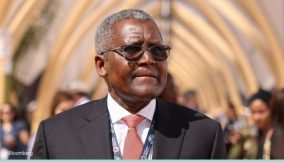…Struggle with rising operation cost
Domestic airlines in Nigeria are beginning to deploy various strategies to cushion effects of low patronage and rising costs on their operations.
BusinessDay Sunday checks show that in the last few weeks, airlines have been faced with low passenger patronage which has since affected flight bookings as a result of skyrocketing air fares.
One of these strategies airlines have deployed to cushion effects of low patronage include flight delays, which sometimes are done intentionally to enable passengers who are supposed to be on another flight join the delayed passengers, so they can have a full aircraft.
Another strategy which has become common among airlines is helping one another airlift passengers going to the same destination.
Airlines now have an agreement amongst themselves to help lift passengers going to the same destination, especially in cases where an airline has few passengers.
Ndukwe Ginika Ogechi, CEO Geena Travels and Tours Ltd told BusinessDay Sunday that the turnout of passengers on local destinations has been very low lately as a result of the costs of tickets.
“The aircraft on local destinations are barely full these days because people cannot afford the fares, yet these airlines have refused to reduce fares. I’m not even sure they make profit anymore as a result of low patronage,” Ginika said.
“What these airlines do now is that they intentionally delay flights when they have few passengers on an aircraft. They can delay for an hour or two to enable them merge passengers who are supposed to be on the next flight with the aircraft on ground.
“For instance, an airline that has a 12pm flight but has just 50 passengers on a 200-seater aircraft may decide to delay the flight to 2pm to enable passengers on 2pm flight join the 12pm passengers, so they can have a fuller flight,” Ginika said.
She further said that if airlines have made fares cheaper, they would be operating full flight but the passengers whose flights are being delayed are the ones bearing the brunt.
In the last few months, air fares across local destinations have continued to rise as a result of rising operational cost.
Airlines sell tickets in naira but do maintenance and repairs, buy spares and carry out aircraft insurance in foreign currencies, especially, dollar. The naira has continued to depreciate, thereby affecting airline operations.
In addition to this, aviation fuel has risen from N700 to a litre last year to now N1,300 to a litre.
Findings show that aviation fuel currently takes about 45 percent of the operating cost; labour, 17 percent; aircraft rent and ownership, 8.5 percent; non-aircraft rents and ownership, 7 percent; professional services, 4.5 percent; landing fees, 2 percent; food and beverage, 1.5 percent; maintenance materials, 13 percent, and transport-related, 1.5 percent.
BusinessDay Sunday’s findings show that a one-way economy class ticket from Lagos to Abuja which cost N55,000 few months ago now cost between N120,000 to N160,000 on Air Peace; N100,000 to N150,000 on United Nigerian Airlines; N70,000 to N140,000 on Dana Air and N180,000 to N200,000 on Ibom Air.
A one-way economy class ticket from Lagos to Owerri which cost about N50,000 some months back now cost N105,000 to N160,000 on Air Peace, N95,000 to N120,000 on United Nigeria Airlines, and N175,000 to N200,000 on Ibom Air.
A one-way economy class ticket from Lagos to Port Harcourt which cost about N55,000 some months back, now cost N110,000 to N170,000 on Air Peace, N95,000 to N110,000 on United Nigeria Airline, N70,000 to N135,000 on Dana Air, N100,000 to N140,000 on Ibom Air and N86,000 to N170,000 on Arik Air.
Mazi Osita Okonkwo, Chief Operating Officer (COO), United Nigeria Airlines, said “currently, aviation fuel has increased to N1,300 per litre or even more. Forex is over N1,000 for one dollar. So, if we are leasing aircraft, how do we pay for the aircraft, having paid for spare parts? In fact, the minimum cost of an airfare should be $100.
“So, I don’t even see how you can fly for less than N150,000 and you will make profit. Anybody who is telling you that he is making it is not telling you the truth. Once the cash runs out, you will start seeing operators parking their aircraft and some have done that already.
“Today, we had our other operators telling us they wanted to transfer their passengers into our aircraft because it doesn’t make sense to fly 50 passengers in a 150-seat capacity aircraft. People are burning cash,” Okonkwo said.
Join BusinessDay whatsapp Channel, to stay up to date
Open In Whatsapp





